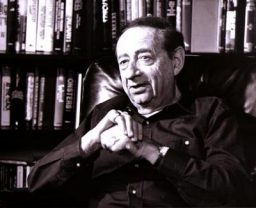 I came across this through Kevyn Winkless’s Pulp Revolution community on Google Plus: a panel discussion from 1968 on H. P. Lovecraft and the pulps with Jack Williamson, E. Hoffman Price, Emil Petaja, Edmond Hamilton, Fritz Leiber, and Robert Bloch. There’s some really good stuff here! First hand accounts of what H. P. Lovecraft and Robert E. Howard were like. Hilarious slams against Harlan Ellison. Lovecraft’s affinity to hard science fiction and his skepticism of Charles Fort. Jack Williamson’s lament on how college students in short story classes completely lacked the sort of grounding that the pulp scene provided.
I came across this through Kevyn Winkless’s Pulp Revolution community on Google Plus: a panel discussion from 1968 on H. P. Lovecraft and the pulps with Jack Williamson, E. Hoffman Price, Emil Petaja, Edmond Hamilton, Fritz Leiber, and Robert Bloch. There’s some really good stuff here! First hand accounts of what H. P. Lovecraft and Robert E. Howard were like. Hilarious slams against Harlan Ellison. Lovecraft’s affinity to hard science fiction and his skepticism of Charles Fort. Jack Williamson’s lament on how college students in short story classes completely lacked the sort of grounding that the pulp scene provided.
For an appetizer, here is Lovecraft disciple Robert Bloch on just how influential Weird Tales really was:
In those days there were only two or three science fiction magazines and only one fantasy magazine, and the coming of Weird Tales every month or bimonthly was quite an event. I looked forward to those Lovecraft stories and I was so pleased whenever I saw one that I got into correspondence with him. And he encouraged me to write and he did help me as he did Alva and as a result I didn’t have enough sense to quit and I kept at it.
Now, Weird Tales as you probably know exerted a tremendous influence in the twenties and in the thirties. It published the first story of Ed Hamilton, for example, “The Monster-God of Mamurth”. Isn’t that correct? It published yarns like Jack Williamson’s “Golden Blood”. It published Fritz Leiber’s first story. Is that correct, Fritz? [Fritz Leiber: My first story accepted, yes.] It published Ray Bradbury’s first story. It published the first story of a gentleman named Thomas Lanier Williams, better known as Tennessee Williams today. It had quite a group of writers that emerged from that particular milieu. That’s right, Alva’s just reminded me that Tony Voucher’s first story appeared in Weird Tales.
So many of us are alumni. We managed to go on from there for better or worse to other things But I think we all owe a great debt of gratitude to men like Lovecraft who introduced us to the field, Men like Farnsworth Wright who had the courage to go on with this magazine. It wasn’t actually a paying proposition you know in those days. There was absolutely no guarantee not only that we would get paid but that the magazine itself would continue from one issue to another.
Many of my stories I’ve been amazed to discover are today collector’s items– garbage collector’s items. This has been true of most of the people that wrote in the field. It is an amazing thing that today perhaps 25 or 3o years later, Weird Tales exerts I think a greater influence on the fantasy field and the science fiction field and directly on the writers it produced than almost any other magazine of its time and with almost any other magazine that’s in existence today. Except of course Mad Comics. Aside from that Weird Tales I think has been preeminent in its field.
Listen to the whole thing!
I’ve often thought that the Hugos should have been named the Wrights. As an editor Farnsworth Wright was beyond capricious, but he did define pre-Campbell weird fiction far more than Hugo Gernsback.
I watched this about a month ago. Some excellent conversation/monologue in there, though EH Price can’t help trying to puff himself up a little bit.
” ‘The Monster God of Mammoth’. Isn’t that correct?”
That would be “The Monster-God of MAMURTH”, by the way.
https://en.wikisource.org/wiki/The_Monster-God_of_Mamurth
Hamilton was a huge Merritt fanboy. “Mamurth” was his attempt at a Merritt-style tale.
Bloch wrote one of, in my humble opinion, the very finest and most disturbing “later” Mythos stories, “Notebook Found in a Deserted House”. I like that he never tried to distance himself from his earlier, HPL-inspired fiction (like his Egyptian tales) either, something writers like Kuttner did for a while (but, to be fair, that likely had something to do with him trying to become respected SF in author in Campbell era).
-
Yeah, “Notebook” is truly excellent.